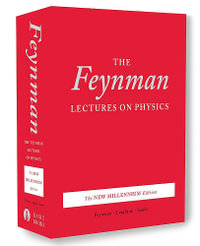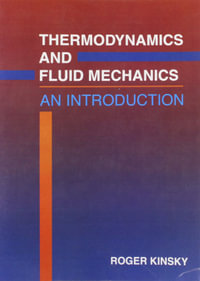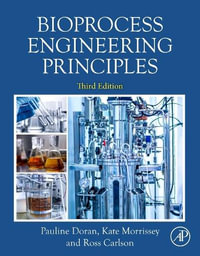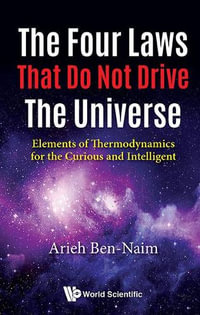Thermodynamics is fundamental to university and college curricula in chemistry, physics, engineering and many life sciences around the world. It is also notoriously difficult for students to understand, learn and apply. What makes this book different, and special, is the clarity of the text. The writing style is fluid, natural and lucid, and everything is explained in a logical and transparent manner. Thermodynamics is a deep, and important, branch of science, and this book does not make it "easy". But it does make it intelligible.
This book introduces a new, 'Fourth Law' of Thermodynamics' based on the notion of Gibbs free energy, which underpins almost every application of thermodynamics and which the authors claim is worthy of recognition as a 'law'. The last four chapters bring thermodynamics into the twenty-first century, dealing with bioenergetics (how living systems capture and use free energy), macromolecule assembly (how proteins fold), and macromolecular aggregation (how, for example, virus capsids assemble). This is of great current relevance to students of biochemistry, biochemical engineering and pharmacy, and is covered in very few other texts on thermodynamics. The book also contains many novel and effective examples, such as the explanation of why friction is irreversible, the proof of the depression of the freezing point, and the explanation of the biochemical standard state.
Industry Reviews
Thermodynamics is one of the few scientific disciplines which has, and continues to have, a deep impact across many areas in sciences and engineering. It is often regarded difficult to understand and few books have been written with the clarity that Sherwood and Dalby have done. They welcome the reader with an intuitive narrative and excellent use of everyday examples. Although the field was established more than three centuries ago, it continues to drive todays innovations in, for example, rechargeable batteries, drug development and diagnostics. This book will set new standards for the field. * Professor Nikolaj Gadegaard, School of Engineering, University of Glasgow *
Remembering my own time as an undergraduate, thermodynamics was always a struggle, concepts seeming to get lost in a sea of equations. Yet at its heart, all of thermodynamics follows from a few beautiful ideas from which emerge the whole field. It is these concepts that this book articulates to the benefit of us students at all career stages! * Professor Miles Padgett, Kelvin Chair of Natural Philosophy, University of Glasgow *
This is an excellent book, covering many of the essential elements of a topic which is of central importance to scientists and engineers. The book is highly readable, and accessible, making it suitable for undergraduate students, and yet contains sufficient advanced material to make it of interest to postgraduates, and experienced researchers. * Professor Omar Matar, Department of Chemical Engineering, Imperial College London *
Proper understanding of classical thermodynamics is a daunting challenge for teacher and student alike. This book nicely navigates the transition from elegant concepts to modern applications, particularly in the context of biochemical systems. * Professor Alan Cooper, School of Chemistry, University of Glasgow *
This book's structure of unambiguous explanation of the fundamentals, followed by the application of those principles to chemical and biochemical settings, allows the reader to see thermodynamics as a tool to understand and design biological systems, rather than as an end in itself. * Professor Daniel Bracewell, Department of Biochemical Engineering, University College London *
























